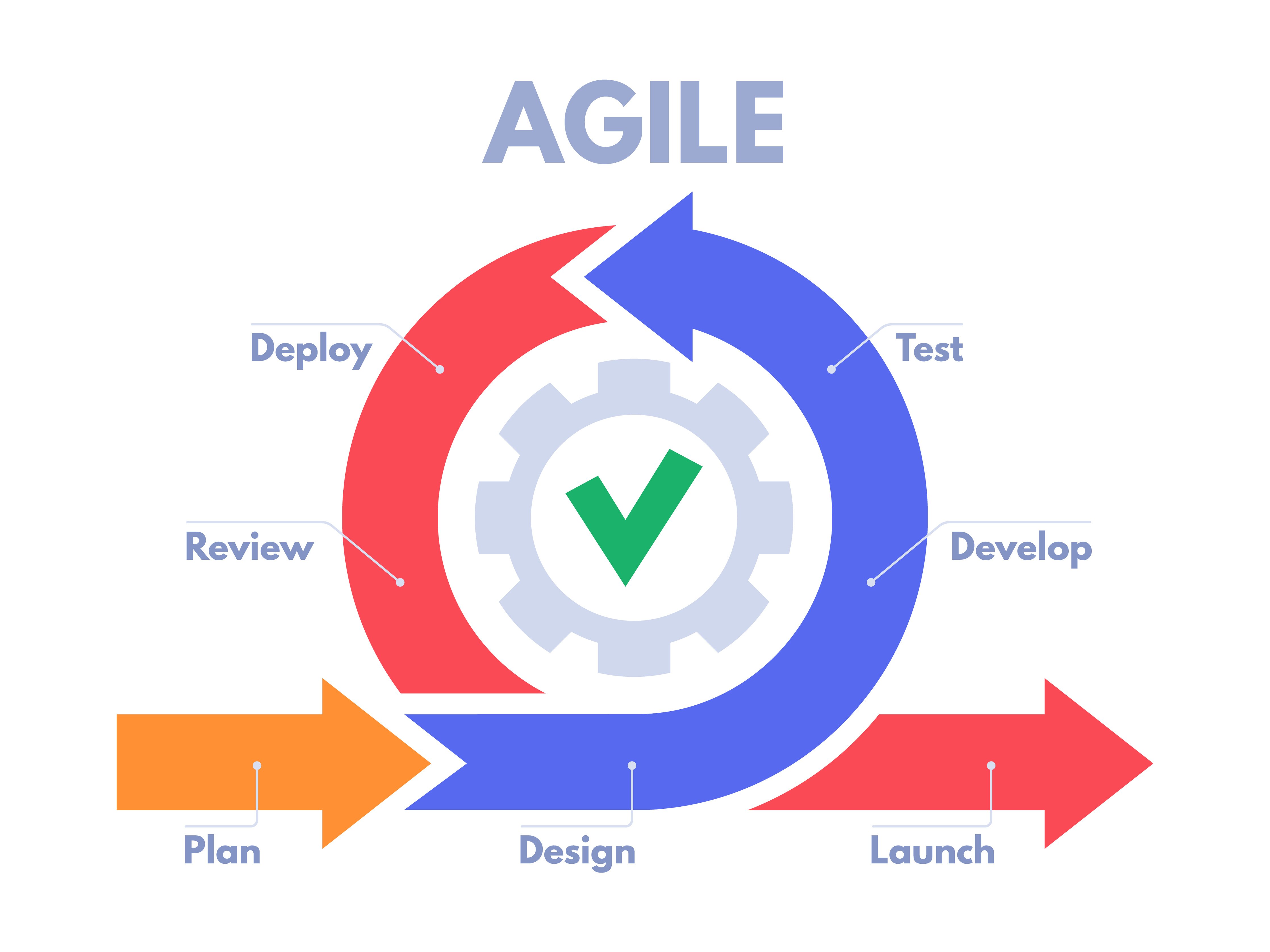Embracing Agile Software Development at ConcertIDC
Read Time 4 mins | Written by: Yogapraba Subramanian

Introduction:
In today's rapidly evolving digital landscape, software development methodologies play a crucial role in determining the success of projects.
With the rise of software development and computer use in the 90s, development processes were failing. It took too long to develop, and by the time development was complete, projects had become obsolete as new technology was introduced. Developers and software firms needed a more efficient and scalable way to develop.
The oldest software development methodology is the Waterfall Model, created in 1970 by Winston W. Royce. The waterfall methodology has five phases: Requirements, Design, Implementation, Verification, and Maintenance. Developers widely adopted the Waterfall methodology, but one of the main disadvantages of the method is the lack of flexibility.
Each phase relies on completing the one prior and does not prioritize frequent feedback and collaboration with a client. While the Waterfall method is still popular and relevant, especially for more predictable projects, new development methodologies were introduced to better approach the ever-evolving landscape and the need for flexibility.
Some newer methodologies include Prototype Development, Scrum, Kanban, V-shaped, Iterative, Spiral, and Big Bang models (many are versions of Agile methodology or other frameworks). Each offers unique benefits, and often, developers will blend methods and frameworks to best address the needs of their projects.
In the 90s, developers experimented with more flexible processes and methodologies. In 2001, 17 thought leaders in software development gathered and wrote "The Agile Manifesto." The short manifesto emphasized "Individuals and interactions over processes and tools. Working software over comprehensive documentation. Customer collaboration over contract negotiation. Responding to change over following a plan."
The manifesto comments on the needed changes in the industry to be adaptive and efficient, focused on collaboration and continual adjustments. The 17 authors also put forth 12 principles to guide project management and development.
Many software developers use agile methodology, and it quickly became one of the most popular development methodologies.
At ConcertIDC, we have embraced agile software development as our preferred approach, enabling us to deliver high-quality solutions that meet our clients' evolving needs with flexibility and efficiency.
Understanding Agile Software Development:
Agile software development is a collaborative, iterative approach that emphasizes adaptability, customer collaboration, and delivering working software incrementally.
The primary phases of Agile methodology are planning, designing, developing, testing, deploying, reviewing, and launching. These phases may vary and be referred to by other names, but they build the basic foundation of the methodology.
The critical thing to note about the phases of this methodology is they are adaptable. Agile is about ensuring collaboration, flexibility, and feedback are prioritized to deliver the best project possible.

Implementing Agile at ConcertIDC:
At ConcertIDC, we have integrated agile principles into our software development processes to foster collaboration, transparency, and continuous improvement. Our teams work closely with clients to understand their requirements and priorities, enabling us to deliver value early and often.
Key Components of Agile at ConcertIDC:
- Cross-Functional Teams: We assemble cross-functional teams comprising developers, testers, designers, and product owners to promote collaboration and ensure a diversity of perspectives throughout the development process.
- Iterative Development: We break down projects into manageable increments, known as sprints, typically lasting two to four weeks. Each sprint culminates in a potentially shippable product increment, allowing us to gather feedback and adjust iteratively.
- Daily Stand-Up Meetings: Our teams conduct daily stand-up meetings to synchronize activities, share progress, and identify impediments. These short, focused meetings foster communication and alignment, ensuring everyone is on the same page.
- Continuous Integration and Delivery: We employ continuous integration and delivery practices to streamline the development process and ensure that changes are integrated seamlessly. This approach enables us to deliver updates and enhancements to our clients quickly and reliably.
- Customer Collaboration: We prioritize collaboration with our clients throughout the development lifecycle, seeking their feedback and input at every stage. This collaborative approach enables us to validate assumptions, address concerns, and deliver solutions that align closely with our clients' needs and expectations.
Benefits of Agile at ConcertIDC:
- Flexibility: Agile allows us to adapt quickly to changing requirements and market conditions, enabling us to stay ahead of the curve and deliver solutions that meet our clients' evolving needs.
- Transparency: Agile promotes transparency and visibility, enabling our clients to track progress, provide feedback, and make informed decisions throughout the development process.
- Efficiency: By breaking projects down into smaller, manageable increments, we can deliver value more frequently, minimize waste, and optimize resource utilization.
- Quality: Agile's emphasis on continuous testing and feedback enables us to identify and address issues early, resulting in higher-quality software that meets our clients' standards.
At ConcertIDC, we are committed to delivering innovative, high-quality software solutions that exceed our clients' expectations.
By embracing agile software development principles and practices, we can adapt quickly to changing requirements, collaborate effectively with our clients, and deliver value incrementally. As we continue our agile journey, we remain dedicated to driving efficiency, innovation, and excellence in everything we do.
